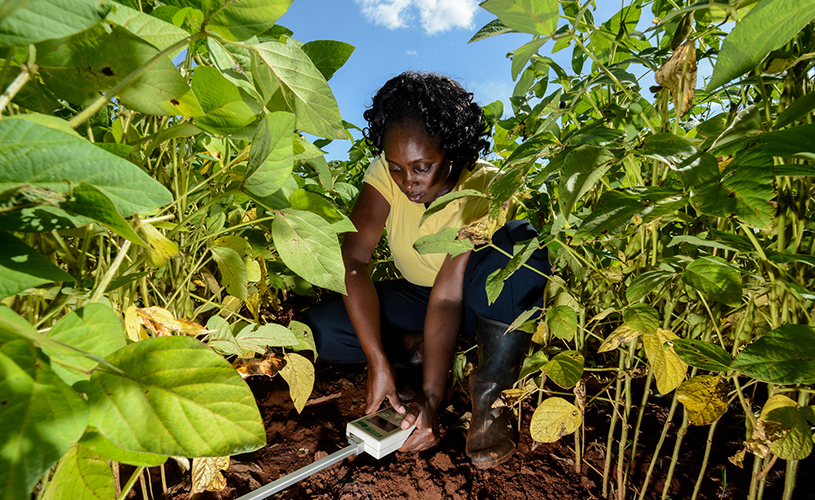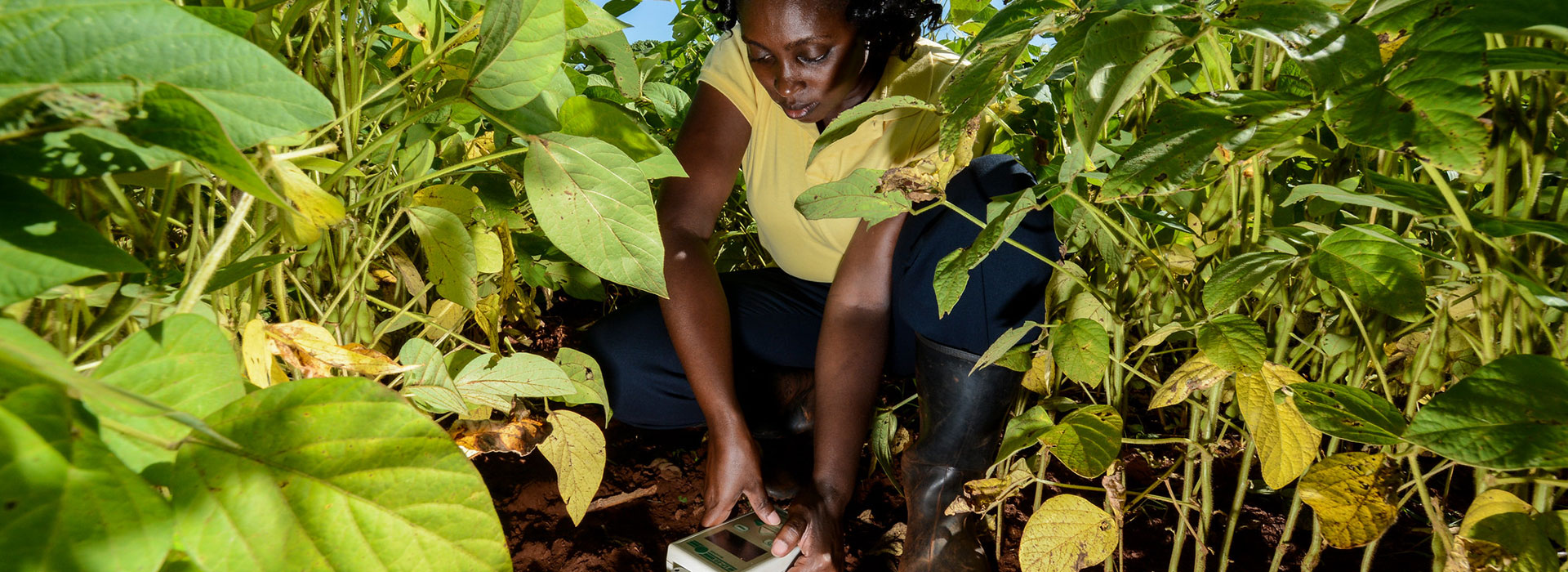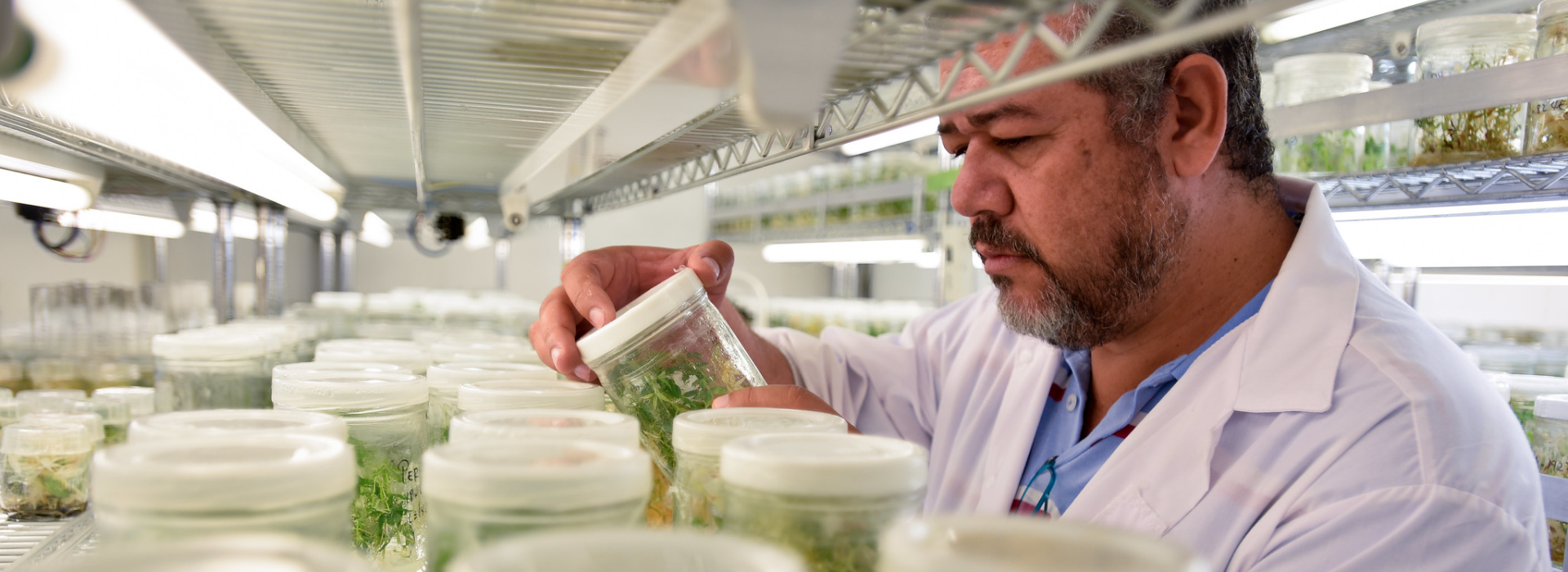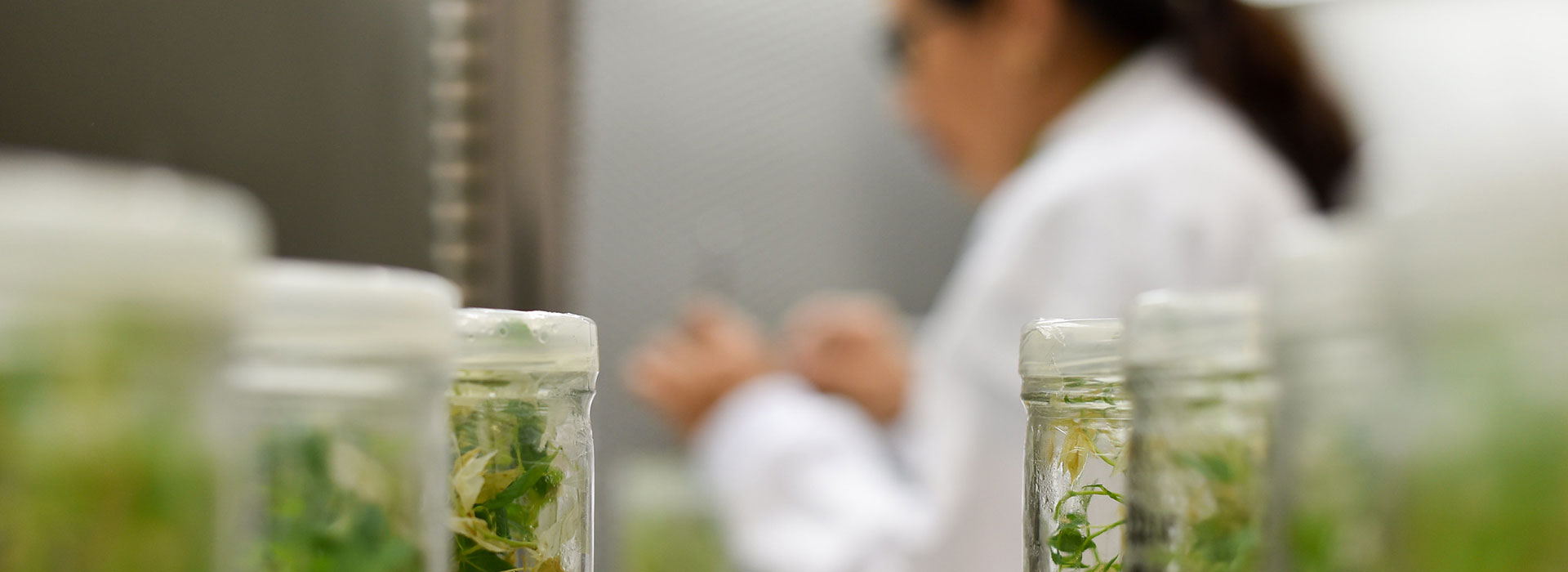

Rural development: Agricultural research works!
African smallholders are using new knowledge to make their farms fit for the future.
In countries such as Niger and Chad, the lack of food often makes daily survival a challenge. However, it is not all bad news, with targeted, straightforward measures that can make all the difference. Many of these stem from agricultural research. Better agriculture helps to prevent people from going hungry despite climate change.
Experts regard international agricultural research as the most efficient system in the agricultural sector for developing countries. A recent study found that every dollar invested in agricultural research generates 10 dollars in the food systems of the Global South. This increases productivity while reducing hunger and poverty.
The Deutsche Gesellschaft für Internationale Zusammenarbeit (GIZ) GmbH therefore supports agricultural research projects around the world that contribute to these goals – 59 projects since 2016 alone.
The projects are bearing fruit and have already enabled 650,000 people to improve their nutrition and farm around two million hectares of land more sustainably. In Niger, for example, GIZ provided around 2,000 families with sets of seeds for higher-yielding cereal varieties on behalf of the German Federal Ministry for Economic Cooperation and Development (BMZ). Chaibou Labaran Batoure is the mayor of one of the communes that benefited from this support. ‘The high-quality seed is enabling our farmers to cope better in the face of challenging food shortages,’ he says. Thanks to the new seed, local farmers were able to almost double their harvest.

A new era in agricultural research
GIZ has had a reconfigured agricultural research strategy since 2021. On behalf of BMZ, it is now focusing on financing large multi-donor initiatives that aim to achieve an impact in five key areas:
- Climate adaptation and mitigation
- Environmental health and biodiversity
- Gender equality, youth and social inclusion
- Nutrition, health and food security
- Poverty reduction, livelihoods and jobs
The aim is to strengthen cooperation between the participating research centres, create synergies and therefore achieve the goals that have been set more effectively.

The fight against banana disease in Rwanda
Another example from East Africa shows that research can make all the difference. Rwandan smallholders have a daily struggle with banana Xanthomonas wilt (BXW) – a plant disease that is threatening their livelihoods. A project supported by GIZ and BMZ has therefore developed an app and a satellite-based early warning system. These tools help smallholders to monitor and contain the spread of banana disease. Patrice Muhimbabwenge is one of those who has reaped the benefits. ‘Our banana plantations were on the verge of collapse,’ he says. ‘I was afraid for my family’s future. But thanks to the new technology, I was able to save my plantations.’ Over 11,000 farmers use the app, and in doing so benefit from innovative agricultural research.
International research meets practice
GIZ not only promotes research, but also ensures that the results are put to use in a way that helps people. By connecting research institutions with local people, scientific findings can be directly translated into practical action. With these approaches, agricultural research is helping to improve people’s nutritional situation and mitigate the consequences of climate change. Training in farming methods and animal health, alongside innovative business models, strengthen local farmers, produce jobs and open up new prospects. This contributes to stable, peaceful societies and creates a better future for local people.
Last update: April 2024

